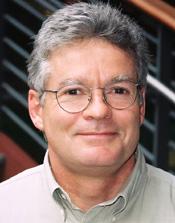
The Cell Free Systems Conference will focus on understanding, harnessing, and expanding the capabilities of biological systems without living intact cells. Session topics will include manufacturing, discovery, prototyping and characterization, diagnostics and sensors, plus much more.
James Swartz is one of the keynote speakers at the conference. He will be discussing the usage of the new process and biomolecule design freedoms in engineering artificial viruses. I spoke with James about his research and new, exciting developments in the field.
What advice would you give to students or young professionals thinking about a career in cell-free systems?
Think outside the cell! We can now approach biological and biochemical engineering in new and unconstrained ways. We don’t need to worry about cell-wall barriers or the need to sustain viability and cell reproduction. We can really measure and control exactly what happens in our bioreactors. This opens really exciting opportunities for building new biomolecules and biomolecular assemblies as well as revolutionary production processes. It also means that we can using components from many different organisms and expand beyond naturally evolved components and processes. Very exciting!
What inspired you to do research in this field?
Severe and sustained frustration at Genentech in failing to produce more complex eukaryotic proteins using inexpensive and highly productive bacterial physiology.
What topic will you be addressing at the Cell Free Systems Conference?
I will describe how we are using the new process and biomolecule design freedoms to engineer smart artificial viruses that are safe and are also highly effective as vaccines and targeted delivery vehicles.
Are there any new developments, technologies, or applications of technologies in this field that you are particularly excited about?
Actually, there are several. On the technology side, it is exciting to see the introduction of broadly engineered cell extracts as well as extracts derived from several different organisms, including mammalian cells. Protein glycosylation is even showing promise. It is also very exciting to know that at least two cell-free produced biopharmaceuticals are in clinical trials and to also see the great progress in technologies for on-demand biopharmaceutical manufacturing.
Since this conference is coming up, this could be a good opportunity to showcase some of the interesting research that will be presented to our members and remind them to register/submit abstracts.
The Cells Free Systems Conference will take place in Boston, Massachusetts from December 4-6, 2019. Learn more and register today.

Dr. Swartz obtained his B.S.Ch.E. from South Dakota School of Mines and Technology. After working for two years for Union Oil Co. of California, he attended M.I.T. where he earned his M.S. and D.Sc. in chemical engineering and biochemical engineering, respectively. In 1981, he joined Genentech, where he served in both scientific and managerial positions related to rDNA protein production for nearly 18 years. In 1998, he moved to Stanford University as a Professor of Chemical Engineering focusing on cell-free biology. He is a co-founder of Sutro Biopharma, Inc., developing cell-free protein pharmaceutical technologies, of GreenLight Biosciences, a cell-free metabolic engineering company, and of Bullet Biotechnology, developing personalized cancer vaccines. His research seeks to reproduce and direct complex metabolism in a cell-free environment. Applications include pharmaceutical protein production and evolution, improved vaccine architectures and antigens, targeted cancer imaging agents, and hydrogen production from sunlight and from biomass.


